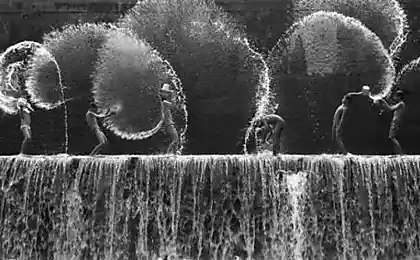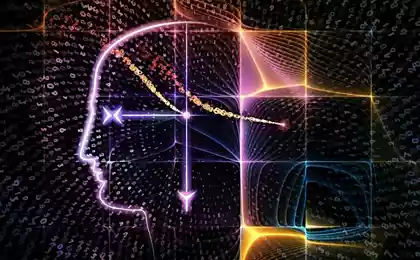1016
Children prefer independent-minded people to those who are not strong your mind

The impressive evolutionary success of Homo sapiens as a species is associated not only with the ability to quickly collect, edit and produce new information, but also with the ability to time to prevent buildup of entropy in its subsequent transfer. According to information theory, the more defective data is stored within the system, the greater the likelihood that it will cease to exist by going to the less ordered state through gradual degradation or rapid phase transition. Thus,
the existence of such a complex system, as a civilization, is entirely dependent on our ability to prevent the growth of "noise" in the circulating information.
Starting with the family, continuing schools, institutes and ending what some automated expert systems on the exchange, using artificial intelligence, all eager to educate and support in a man is the ability while minimizing potential errors. But judging by how effectively and without prompting adults to cope with this task babies, this ability is not artificially acquired and hereditary evolutionary consolidate skills, critical for survival.
Growing up, a large number of important information about the world's children learn from adults. As far as quality, correct and useful will be collected "database" depends on constantly make choices, how informants should be trusted more, and some less. Experts in child psychology have accumulated enough evidence that even at a very young age a person quickly produced a clear, consistent and quite uncompromising system of ratings that determine who to trust and who not.
But what criteria guided the children, fully trusting one adult and not listening to others, even if their information is correct?
The new study, whose results will be published in the upcoming issue of Psychological Science, add to the already studied painting a pretty interesting touch
It is known that at the age of three years for a child matter how careful adults to provide information: to seek new knowledge, they will be only for those who have given them the right answer.
Shiri Einav psychologist at Oxford Brookes University, co-author of the published article, believes that this story is not exhausted.
"If you give correct information, it does not mean that you are knowledgeable, credible people - she explains. - Was right you could learn, for example, the correct answer from someone else or by accident ».
Einav and her colleague Elizabeth Robinson of Warwick University decided to find out,
taken into account whether the child decides whether an adult deserves trust, not only the fact that his answers are correct, but why he did it to give the correct answer.
For this purpose, two experiments were delivered, disguised as a puppet show, which involved three groups of children - three, four and five years (for forty children in each age group), and three dolls - Blue, Green and Bear-tip. At first, the children were asked to show the images of three dolls known to them animals - cow, rabbit and elephant. Dolls difficult to name the animals, but one agreed to take prompt knowledgeable Bears and the other refused, preferring to answer the question on their own. As a result, the two dolls called proper names.
In the second part of the presentation Bear is not involved, and the children showed them a picture of unknown animals (mongoose) and asked to indicate on a doll that could tell them what kind of animal. Three year old audience was divided, pointing to the doll and the other almost equally (48%).
But 75% of four- and five-year audience was greater confidence that the doll, which reached the correct answer, "your mind».
Interestingly, these proportions have not changed even after significant changes in the script of the first and second part of the experiment that minimize the subjective feeling that the intellectual level of the dolls varies. The second part of the next experiment, such as dolls appeared in a completely equal positions, leading already conflicting options in animals and naming thus demonstrating that both can think without prompting. However, even such a demonstration of equal intellectual abilities of children are not convinced that the "smart" doll, which had previously taken advantage of other people's knowledge, to be trusted more than the one that has received this knowledge his mind.
"We think it is important that starting around the age of four children begin to show as a thin intelligibility" - sums Shirin Einav.
"They can distinguish between those who know from those who give correct and useful information, but whose knowledge is secondary. This allows them to focus on those people who have the greatest benefit in training, "- said the psychologist.
How this remarkable skill that allows you to distinguish between a "strong" intellectual work from the potentially more "weak", even giving correct and useful answers, gradually weakens with age, allowing you to store defect information in our "database" - a good question that is unlikely Whether you can get an answer in terms of child psychology.
Men from childhood consider psychoanalysis empty occupation
On the weight of men and women marriage affects differently.























